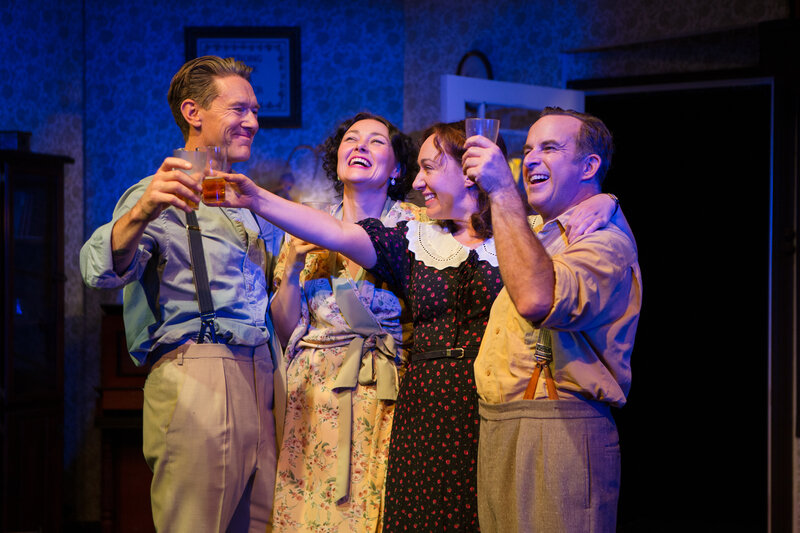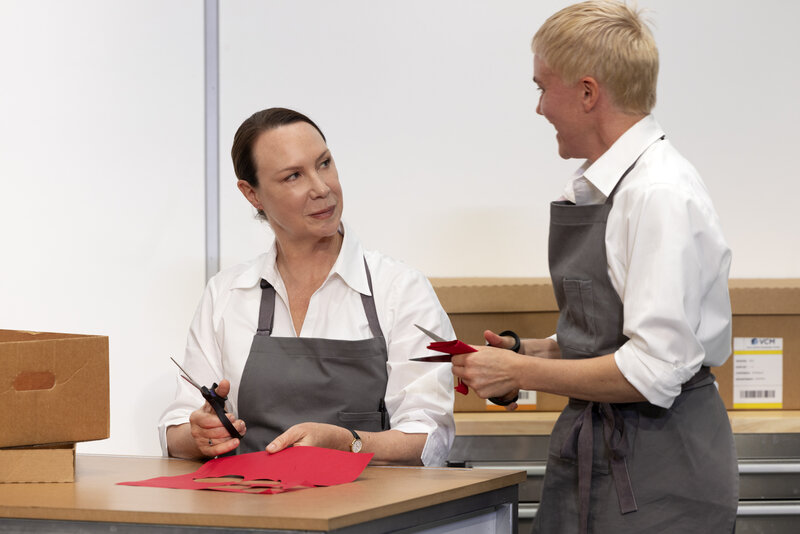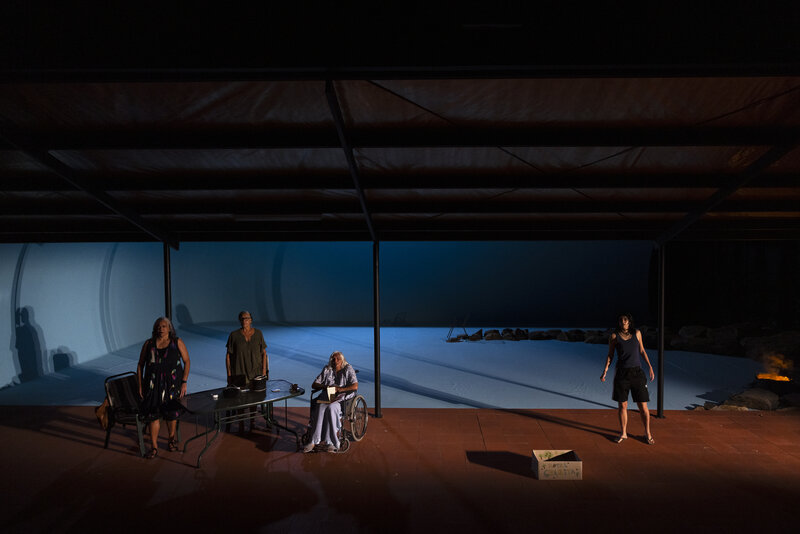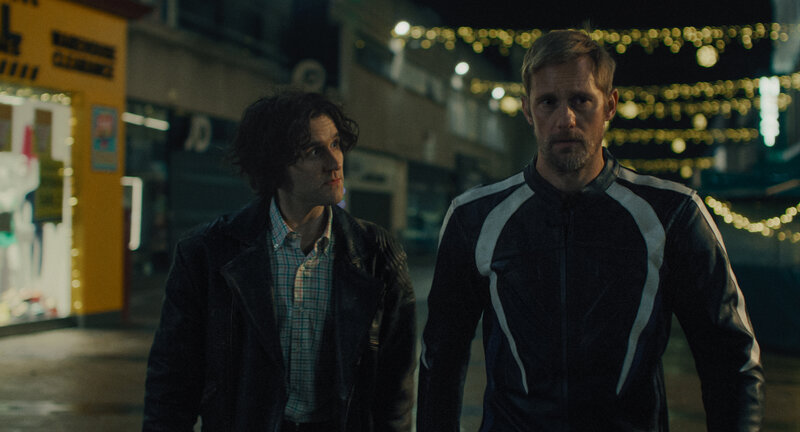A clever study in absurdity, The Horses by William Lane is an unusual piece of Australian literature that unpacks notions of class, ideology, religion and education. Set in a boarding school on Sydney’s outskirts, the novel features young men who wear armour for uniforms (including helmets, breastplates and chain metal gloves), teachers who care more the school’s reputation and horses than its pupils, and school days that are marked more by equine-related activities than lessons.
 The story is told through two perspectives – that of a new master, Gregory, and a scholarship boy David, the school’s only day student. Both start at the school at the same time and their initial feelings of excitement and trepidation are quickly replaced with confusion, frustration and concern. While they try to fit in with warring factions of students and teachers, a prolonged season of rain isolates the school from the outside world, heightening tension. As buildings slip and slide away, so do morals and ethics, with teachers undermining each other and students ganging up on each other in an increasingly violent and disturbing manner. It’s the Eastern suburbs against the Western suburbs, Rurals against Urbans; meanwhile, horses escape and join wild horses on the property, mirroring the chaos within the school community.
The story is told through two perspectives – that of a new master, Gregory, and a scholarship boy David, the school’s only day student. Both start at the school at the same time and their initial feelings of excitement and trepidation are quickly replaced with confusion, frustration and concern. While they try to fit in with warring factions of students and teachers, a prolonged season of rain isolates the school from the outside world, heightening tension. As buildings slip and slide away, so do morals and ethics, with teachers undermining each other and students ganging up on each other in an increasingly violent and disturbing manner. It’s the Eastern suburbs against the Western suburbs, Rurals against Urbans; meanwhile, horses escape and join wild horses on the property, mirroring the chaos within the school community.
‘”We are the hollow men/We are the stuffed men – “‘ Donald recited the whole poem (he waved the book about, not reading it, but using it as a prop), shifting his already old limbs in excitement. ‘That’s us, isn’t it, David? It describes us perfectly – not you, David, but me, and Steven, and us inmates of the school. ‘”We are the hollow men/We are the stuffed men/Leaning together/Headpiece filled with straw. Alas!” I was so happy when I found it, David. You know, I was in despair, then I picked up this little book. It’s amazing they haven’t banned these poems, burned this sort of stuff. Don’t you think it describes exactly what you find here? You know we are in hell?” (p100)
The Horses is a subtle and complex read that takes a little getting used to. Once you realise that it’s a satire, that it’s using absurdity to make its point, it becomes engrossing and funny. One scene at the end showed the masters speaking in well-worn horse cliches as they chastise David, who’s had enough of the place: ‘Don’t look a gift horse in the mouth, young man’… ‘ You can lead a horse to water’ … ‘Looks like he backed the wrong horse’… I loved this scene.
Beautifully written and thought-provoking, The Horses reminds me of a surrealist painting; it’s got elements of reality juxtaposed with the absurd, and overall, it’s a clever piece of work. It’s a boarding school story unlike any I’ve ever read.
Here’s an extract:
The staffroom doors flew open and a figure strode from the darkness. It was Capon, the headmaster, swishing forth across the flagstones in a purple gown. The retinue of masters followed, bounding down the steps onto the lawns. They went crunching along a gravel path, the sound crisp in their early-morning ears, but rather lost in the broader expanse of buildings. Gregory followed eagerly in the rear. He was puzzled by a clinking sound that drew closer as they walked. The men descended a second flight of steps en masse, reaching a third. Here they halted and peered down at an area the size of a football field, covered with ranks of men in suits of armour. No, not men – boys, and many of them quite small. The ranks tapered from tallest to shortest. The armour flashed in the morning sun.
The waiting boys became conscious of the masters above, and their clinking subsided. A few mothers and fathers were departing from the parade ground’s edge, perhaps by request. A tiny jet flew in a line far behind.
‘Breathtaking, isn’t it,’ muttered Parsons, the master to Gregory’s left. Parsons wore round spectacles, and had a bald, peaked head.
‘I had no idea how different this place would be,’ said Gregory.
‘Better get them into the hall, or they’ll start collapsing in the sun,’ said the master to his right. This was Val, a compact, efficient-looking person with small black eyes.
A man dressed in a black uniform bounded up the steps. The Whipper had a strained and taut red face, with flaring nostrils. Gregory had seen him pacing the assembled rows, occasionally darting forward to strike a boy’s armour with a baton. Now he strode onto a balcony that skirted the edge of the nearest building and overlooked the parade ground; stopping at the midpoint, he turned, stamped his boot, thrust out his chest and chin, and barked a command. The school came to attention with a metallic report. Greaves clapped greaves, gauntlets smacked tassets. Gregory jumped.
‘This is the bit I like,’ said Parsons, breathing through his mouth, rubbing the peak of his skull. His spectacles began misting up.
Available from good bookstores and Transit Lounge. My copy was courtesy of Quikmark Media via Transit Lounge.
Author: William Lane
Publisher: Transit Lounge
RRP: $29.95
Monique Mulligan
For more of Monique Mulligan’s writing on books, check out Write Note Reviews

David Edwards is the former editor of The Blurb and a contributor on film and television




